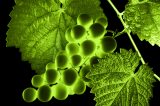
Biological tools in the vineyard to improve varietal expression
LalVigne under Investigation #1
In the context of current viticulture, the change observed in the climatic records of the last decades, with the rise in temperatures and the unusual rainfall distribution, is challenging for wine growers and winemakers to getting balanced grapes and wines, as these changes are leading to growing differences between technological maturity and aromatic and phenolic maturations. In order to face these changes, wine growers try to apply agronomic practices that can counteract these effects. Often these practices are not selective and have unwanted effects on different parameters of production or quality of the grapes. UI Vineyard Solutions #1 2020
ESL 2019 : Biological tools in winemaking adapting to a changing environment
The proceedings from the 2019 Entretiens Scientifiques Lallemand held in Weisbaden Germany are now available. the 2019 international meeting focused on different strategies to overcome some of the issues related to climate change. From the vineyards with Lalvigne foliar sprays to managing acidity with non-Saccharomyces yeast, to nutrition and oxidation management. Special guests from the Geisenheim Institute , Prof Manfred Grossman and Prof J. Wendland presented the latest work from the Institute.
The Entretiens had the privilege of hosting Prof Monika Christmann from Geisenheim University and the OIV 1st Vice-President as the key note speaker.
ESL 2019 eversion
ESL 2018: Micobiological strategies to optimize wine regionality and personality
Proceedings of the XXVIIIth Entretiens Scientifiques Lallemand held in Blenheim, New Zealand focused on Sauvignon blanc and Pinot noir wine production. Topics presented included aroma profiles of Sauvignon blanc, yeast to help shape Sauvignon blanc styles and the challenges of Pinot noir wine. Master of Wine student, Ms Sarah Benson (Manchester, UK) presented her study ‘Creating Marlborough Sauvignon blanc in different styles, and assessing UK consumer and journalist preferences for these wines’.
ESL_Proceedings_2018
ESL 2014: New outlook in viticulture and the impact on wine quality
Proceedings of the XXVth Entretiens Scientifiques Lallemand held in Mendoza, Argentina focused on the how the complexity of fruit composition, vine genetic factors and viticultural practices influence wine quality. Topics presented discussed the effect of fruit physiology at harvest, grape management, irrigation practices, and phenolic maturity, and how these factors influence final wine quality.
Cahier ESL 2014 complet
- 1
- 2
